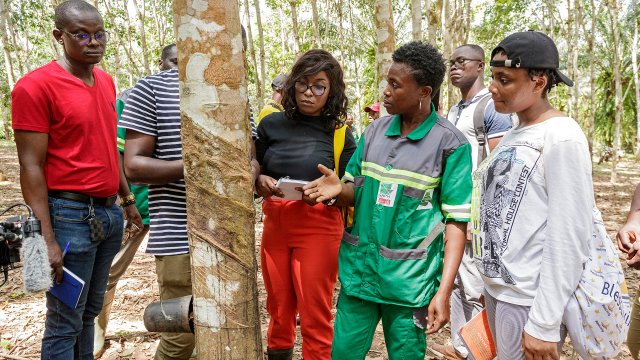Yielding the power of numbers to fight hunger, one statistician at a time
Investing in young African women and men to improve countries’ agricultural data

Combining theory and practice, the Global Strategy to Improve Agricultural and Rural Statistics, led by FAO, is offering scholarships to train the next generation of agricultural statisticians.
©FAO/Hug Tiadji
When thinking of the work of statisticians, the image of croplands and farm fields probably does not come to mind, but in fact, agricultural statistics are vital to understanding and addressing the on-the-ground realities of food insecurity, and more professionals are needed in this field to improve the world's food productivity, sustainable production and to end hunger. Although traditionally underrepresented, young Africans, women in particular, are now working to bridge the data gap in their countries in the hope of improving the agricultural landscape in Africa.
Amid the lush savannahs of Côte d'Ivoire, Désirée Christelle and Deborah Conan arrive in the Dabou region, specifically in the village of Konou, as part of a master’s programme in agricultural statistics under the Global Strategy to Improve Agricultural and Rural Statistics (GSARS) programme. Led by the Food and Agriculture Organization of the United Nations (FAO) and supported by the Bill & Melinda Gates Foundation and the European Union, this programme is a long-term initiative to enable the production of more and better agricultural statistics in developing countries.
The village of Konou is particularly known for its rubber, palm tree and cassava production, and Désirée and Deborah have come to understand the agricultural process behind the numbers.
“Does it yield as much as it used to? What changes have occurred in productivity?” Désirée asks a group of local farmers.
Their answers will help these young agricultural statisticians learn how statistical theory applies to real life agricultural production and yield.
Learn more